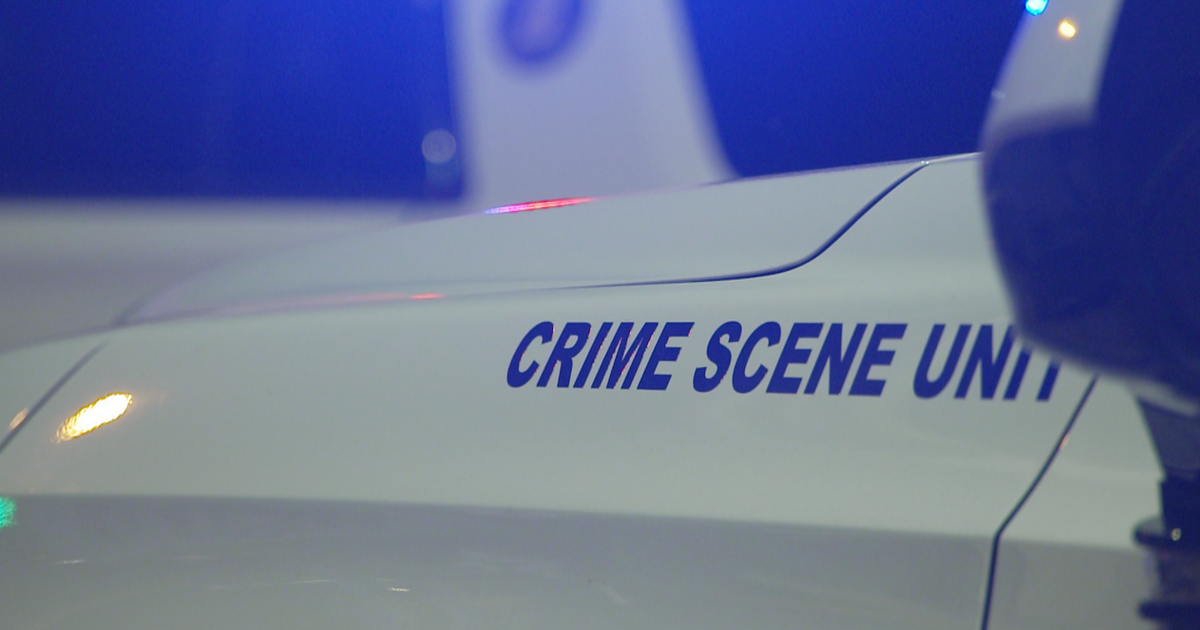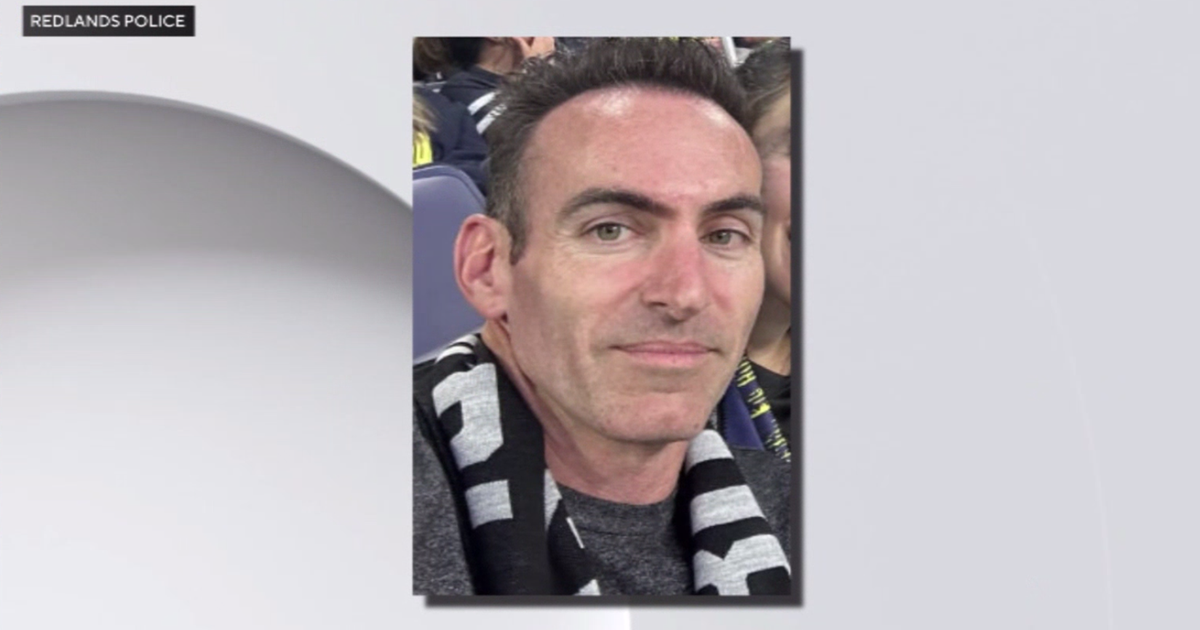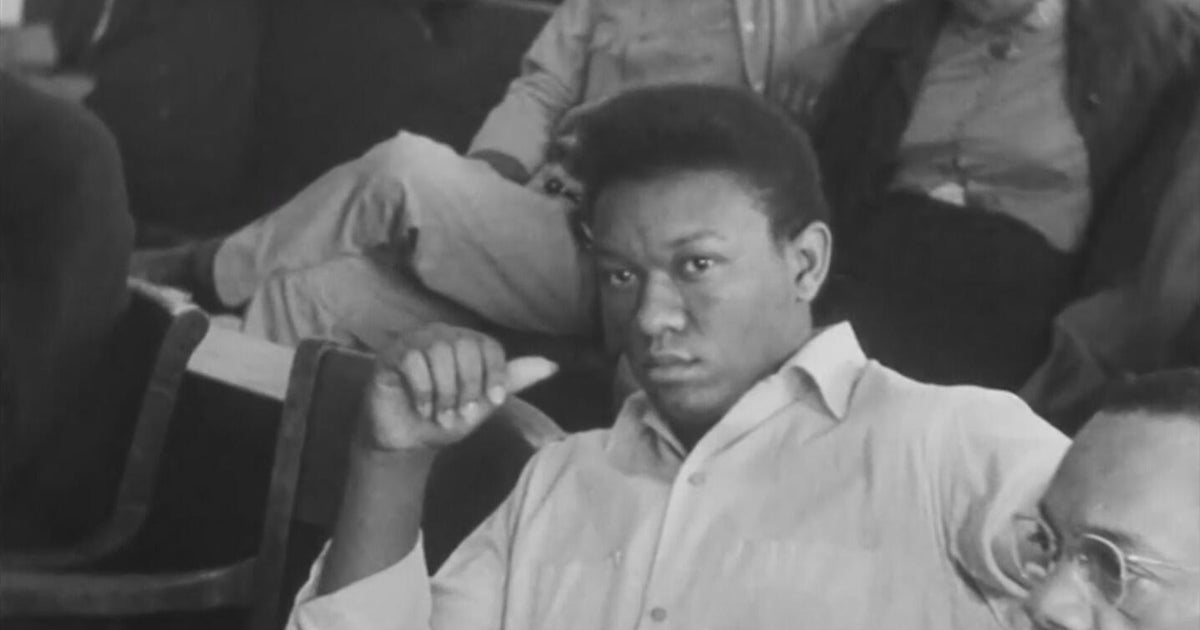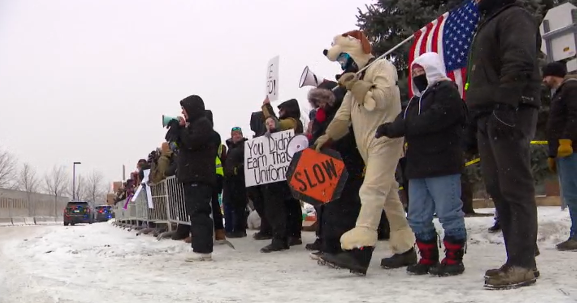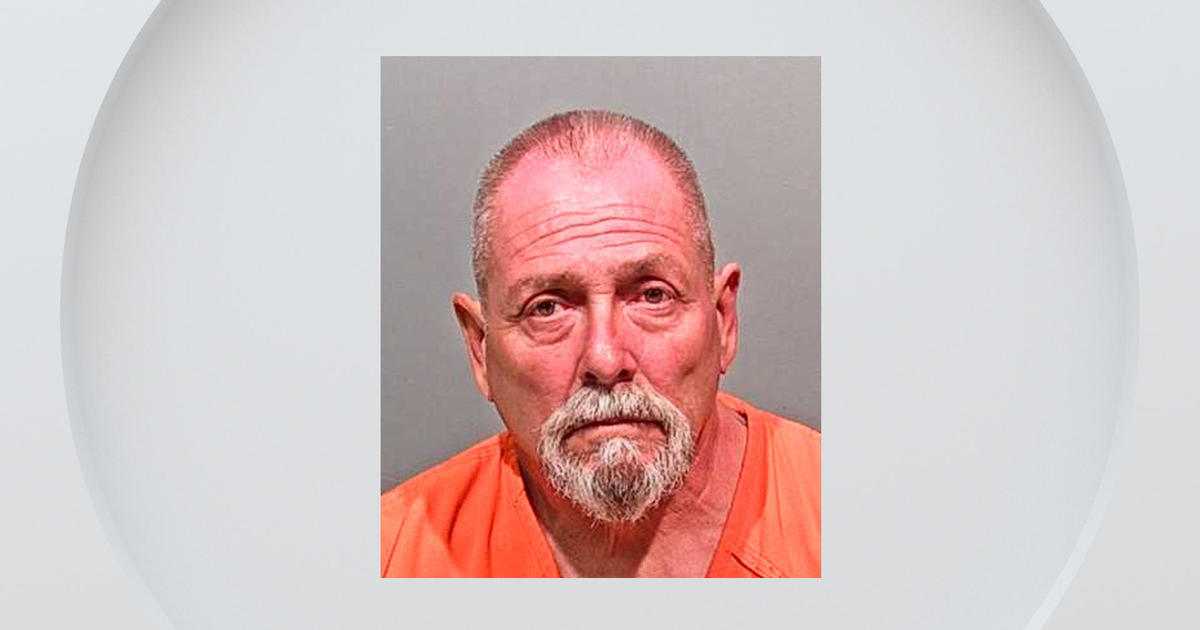Former MPD Officer Derek Chauvin In Custody, Charged With Murder In George Floyd's Death
MINNEAPOLIS (WCCO) -- Fired Minneapolis police officer Derek Chauvin has been arrested four days after George Floyd's fatal arrest that sparked protests, rioting and outcry across the city and nation, and Hennepin County Attorney Mike Freeman announced he has been charged with third-degree murder and manslaughter.
On Friday, John Harrington, commissioner of the Minnesota Department of Public Safety, announced that Chauvin, 44, of Oakdale, was taken into custody by the Minnesota Bureau of Criminal Apprehension, who said that Chauvin was arrested in Minneapolis. There was some speculation that he had gone to a home in Florida.
"We have now been able to put together the evidence that we need. Even as late as yesterday afternoon, we did not have all that we needed," Freeman said, before saying that he was unable to speak to specific pieces of evidence and which one specifically was needed to file charges.
"This is by far the fastest that we've ever charged a police officer," Freeman said.
WHAT THE COMPLAINT SAYS
A criminal complaint released Friday afternoon details the events that unfolded on May 25:
Officers were dispatched to Cup Foods on the report of a man buying merchandise with a counterfeit $20 bill. Shortly after 8 p.m., Officers Thomas Lane and J Alexander Kueng arrived with their body cameras activate and recording.
The officers learned from store workers that the man, later identified as Floyd, was parked in a car around the corner.
Body camera footage shows the officers approaching the car with Lane on the driver's side and Kueng on the passenger side. Three people were in the car: Floyd, another man and another woman.
As Lane began speaking with Floyd, he pulled out his gun, pointed it at Floyd and ordered him to show his hands. Floyd then put his hands on the steering wheel and Lane holstered his firearm.
Lane then ordered Floyd out of the car and handcuffed him, but Floyd "actively resisted being handcuffed," the complaint states. Once handcuffed, however, police said Floyd did not resist and walked with Lane to the sidewalk. Floyd then sat on the ground at Lane's direction.
The complaint says Lane spoke with Floyd for under two minutes, asking Floyd for his identification and name. He also asked Floyd if he was "on anything" and told Floyd he was going to be arrested for passing counterfeit currency.
Then, Lane and Keung stood Floyd up and attempted to take him to their squad car. Floyd then "stiffened up, fell to the ground and told the officers he was claustrophobic," the complaint states.
That's when Officers Chauvin and Tou Thao arrived on the scene in a separate squad car.
After making several attempts to get Floyd in the backseat from the driver's side, the complaint says Floyd wouldn't get in and would struggle with the officers by intentionally falling down.
The complaint says that Floyd began saying and repeating he could not breathe while standing outside the car. Chauvin then went to the passenger side and tried to get Floyd in from that side, with Lane and Keung assisting.
Chauvin then pulled Floyd out of the passenger side of the car at 8:19 p.m. and Floyd went to the ground face down while still handcuffed.
While Keung and Lane held Floyd's back and legs, Chauvin "placed his left knee in the area of Mr. Floyd's head and neck." Floyd could be heard repeatedly saying "I can't breathe", as well as "mama" and "please." The officers, however, stayed in their positions.
The officers told Floyd, "You are talking fine", as he continued to struggle. At one point, Lane asked "should we roll him on his side?" To which Chauvin responded, "No, staying put where we got him," the complaint states.
Lane then said he was "worried about excited delirium or whatever" to which Chauvin responded, "That's why we have him on his stomach." They continued holding their positions.
At 8:24 p.m., Floyd stopped moving. Kueng then checked Floyd's right wrist for a pulse and said "I couldn't find one." The officers continued to hold their positions.
At 8:27 p.m., Chauvin removed his knee from Floyd's neck as medics arrived. Floyd was taken away in the ambulance. He was pronounced dead at Hennepin Healthcare.
An autopsy report is pending, but the Hennepin County Medical Examiner did release these findings: There were no physical findings that support a diagnosis of traumatic asphyxia or strangulation, and that Floyd had underlying health problems, including coronary artery disease and hypertensive heart disease.
According to the medical examiner, "the combined effects of Mr. Floyd being restrained by the police, his underlying health conditions and any potential intoxicants in his system likely contributed to his death," the complaint states.
The complaint determined that Chauvin had his knee on Floyd's neck for 8 minutes and 46 seconds total. Two minutes and 53 seconds of that time was after Floyd became unresponsive.
"Police are trained that this type of restraint with a subject in prone position is inherently dangerous," the complaint said.
If convicted, Chauvin could face up to 25 years in prison on the murder charge and up to 10 years in prison on the manslaughter charge. No court appearance has been set. Click here for a link to the complaint (.PDF).
MORE DETAILS/CHARGES EXPECTED IN GEORGE FLOYD CASE
Freeman says the other officers involved in the fatal arrest are under investigation and that charges are expected.
"But I'm not going to get into that," he said. "Today, we're talking about former officer Chauvin."
Mayor Jacob Frey called the decision to charge "an essential first step on a longer road toward justice and healing our city."
"What's happened in Minneapolis is bigger than any one city and any single event," Frey said. "For our Black community who have, for centuries, been forced to endure injustice in a world simply unwilling to correct or acknowledge it: I know that whatever hope you feel today is tempered with skepticism and a righteous outrage."
The FBI, meanwhile, is seeking photos/video from those who witnessed the incident to support the federal civil rights investigation into Floyd's death. Witnesses with digital media can go here: FBI.gov/MinneapolisTips
Ben Crump, the attorney representing Floyd's family, released a statement on their behalf, saying that they were expecting first-degree murder charges.
"We call on authorities to revise the charges to reflect the true culpability of this officer," the statement said.
A first-degree murder charge carries a mandatory life sentence in Minnesota.
Attorney General William Barr issued a statement Friday afternoon, saying:
The video images of the incident that ended with death of Mr. Floyd, while in custody of Minneapolis police officers, were harrowing to watch and deeply disturbing. The state prosecutor has been in the process of determining whether any criminal charges are appropriate under state law. On a separate and parallel track, the Department of Justice, including the FBI, are conducting an independent investigation to determine whether any federal civil rights laws were violated. Both state and federal officers are working diligently and collaboratively to ensure that any available evidence relevant to these decisions is obtained as quickly as possible. Under our system, charging decisions must be, and will be, based on the law and facts. This process is proceeding quickly. As is the typical practice, the state's charging decisions will be made first. I am confident justice will be served.
Chauvin is the former officer in the video seen around the world with his knee on Floyd's neck for at least five minutes. He'd been with Minneapolis police for 19 years.
Police initially said Floyd was resisting arrest and had a medical incident. However, video obtained by CBS News shows Floyd cooperating with officers, at least in the initial moments of the encounter.
A bystander's video showed Floyd pleading that he could not breathe as a white officer -- identified as Chauvin -- knelt on his neck and kept his knee there for several minutes after Floyd stopped moving and became unresponsive.
Related: Medics Worked On 'Unresponsive, Pulseless' George Floyd After Mpls. Arrest
All four officers were fired a day after Floyd's death. As of yet, none of the other three officers have been reported as having been taken into custody.
- Gov. Walz Says Order Must Be Restored As Twin Cities Enters 4th Day Of George Floyd Unrest
- 'Silence Is Violence': Minneapolis Protests Spread To Other Cities Across The US
- 'A Beautiful Spirit:' George Floyd Made New Life in Minn., But Lost Job Due To Pandemic
- President Trump Calls Mpls. Protesters 'Thugs'; Doubles Down On 'When The Looting Starts, The Shooting Starts' Message
- 'Let My Building Burn': Gandhi Mahal Restaurant Owner Calls For Justice For George Floyd
- 'There Is No Need To See More Video': Police Across The Country Speak Out Against George Floyd's Death
- Minneapolis Mayor Jacob Frey Addresses City In The Middle Of Night Of Violence
- 'Not Our Officer': St. Paul PD Says Social Media Post Claiming One Of Its Officers Incited Mpls. Riots Is False
- Donate To Help Rebuild Damaged Small Businesses On Lake Street
- Owner Of Cup Foods, Where Police First Encountered George Floyd, Calls For Justice
- City Of Minneapolis Releases Transcript Of 911 Call On George Floyd
The incident drew comparisons to the case of Eric Garner, an unarmed black man who died in 2014 in New York after being placed in a police chokehold. He also said the words "I can't breathe" while being arrested. The phrase has become a rallying cry for protests over police brutality. The video circulated widely on social media, sparking protests in Minneapolis and cities across the country.
Related: Minneapolis Burns During 2nd Night Of Protests Over George Floyd's Death
On both Tuesday and Wednesday, protests began with peaceful demonstrations near where Floyd was pinned to the ground, but violence later broke out near the 3rd Precinct police station. Wednesday evening's protests involved more than 30 fires, destruction of businesses and looting.
Unrest was more widespread Thursday night, with destruction spreading to St. Paul, where more than 170 businesses were damaged. In Minneapolis, rioters burned the 3rd Precinct police station.
Earlier Friday, Minnesota Gov. Tim Walz said the looting and arson must come to an end so that state can address the problems that led to Floyd's death.
"We cannot have the looting and recklessness that went on," he said. "It's time for us to clean our streets."
At that same press conference, Harrington, the commissioner of public safety, called Floyd's death a murder.
"That's what it looked like to me," he said. "I'll call it as I see it."
Floyd's death is being investigated by the U.S. Attorney's Office, FBI in Minneapolis and the Department of Justice Civil Rights division.
